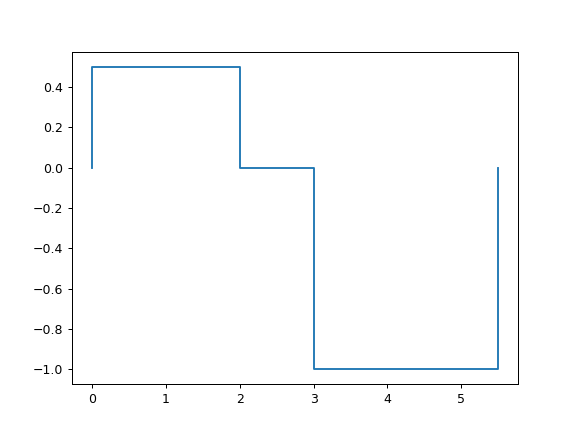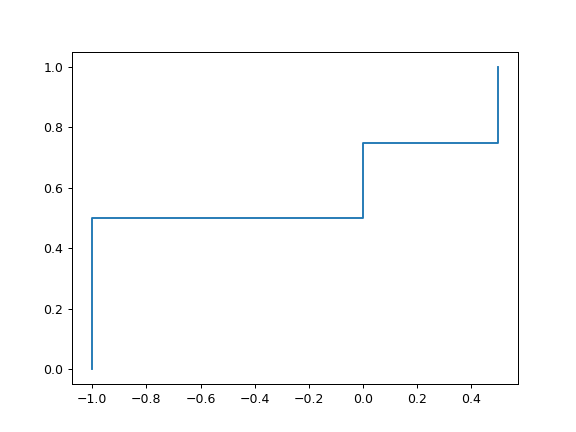staircase.Stairs.ecdf_stairs¶
-
Stairs.ecdf_stairs(lower=-inf, upper=inf)¶ Calculates an empirical cumulative distribution function for the corresponding step function values (and returns the result as a Stairs instance)
Parameters: - lower (int, float or pandas.Timestamp, optional) – lower bound of the step-function domain on which to perform the calculation
- upper (int, float or pandas.Timestamp, optional) – upper bound of the step-function domain to perform the calculation
Returns: An instance representing an empirical cumulative distribution function for the step function values
Return type: See also
Examples
>>> s2.plot()

>>> ecdf = s2.ecdf_stairs(1,5) >>> ecdf.plot() >>> plt.show()

>>> print(f'{ecdf(0):.2%} of values, for s2 between 1 and 5, are less than or equal to 0') 75.00% of values, for s2 between 1 and 5, are less than or equal to 0
>>> print(f'{ecdf(0, how="left"):.2%} of values, for s2 between 1 and 5, are strictly less than 0') 50.00% of values, for s2 between 1 and 5, are strictly less than 0
>>> print(f'{ecdf(0.2) - ecdf(-1):.2%} of values, for s2 between 1 and 5, are in (-1, 0.2]') 25.00% of values, for s2 between 1 and 5, are in (-1, 0.2]
>>> print(f'{ecdf(0.2, how="left") - ecdf(-1, how="left"):.2%} of values, for s2 between 1 and 5, are in [-1, 0.2)') 75.00% of values, for s2 between 1 and 5, are in [-1, 0.2)
